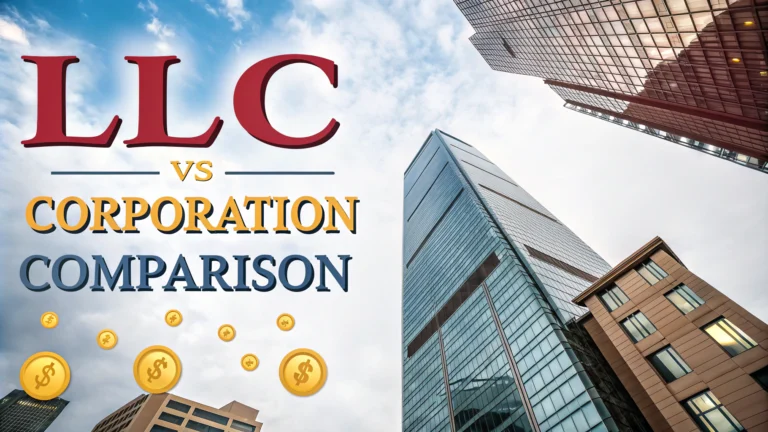Choosing the right business structure can make or break your company’s financial and legal future. Entrepreneurs face a critical decision between Limited Liability Companies (LLCs) and traditional Corporations, each offering unique advantages and challenges that impact taxation, liability protection, and operational flexibility.
Understanding Business Structures: The Foundation of Your Company
Business structures are more than legal paperwork—they’re strategic blueprints that define how your company operates, protects assets, and manages financial responsibilities. The right structure can shield personal assets, optimize tax strategies, and provide a framework for future growth.
Key Differences Between LLCs and Corporations
Navigating the complex landscape of business entities requires a deep understanding of their fundamental characteristics. LLCs and corporations differ significantly in management, taxation, ownership, and regulatory requirements.
Legal Structure and Formation
Each business structure comes with distinct formation requirements and legal implications. LLCs offer flexibility, while corporations provide a more rigid but established framework. Understanding these nuances helps entrepreneurs make informed decisions.
- LLC Formation: Simpler, fewer compliance requirements
- Corporation Formation: More complex, stricter regulatory standards
Taxation Considerations
Tax treatment represents a critical factor in choosing between an LLC and a corporation. The tax implications can dramatically impact your company’s financial performance and growth potential.
| Business Structure | Taxation Method | Key Benefits |
|---|---|---|
| LLC | Pass-through taxation | Avoids double taxation |
| Corporation | Corporate taxation | Potential tax advantages for reinvestment |
Ownership and Management Structures
The way a business is owned and managed can significantly influence its operational efficiency and strategic direction. LLCs and corporations offer different approaches to governance and equity distribution.
Ownership Flexibility
Ownership structures vary between LLCs and corporations, affecting how investors, members, and shareholders interact with the business. Each model provides unique opportunities for capital raising and equity distribution.
Liability Protection Strategies
Protecting personal assets is a primary concern for business owners. Both LLCs and corporations offer liability shields, but with distinct mechanisms and levels of protection.
